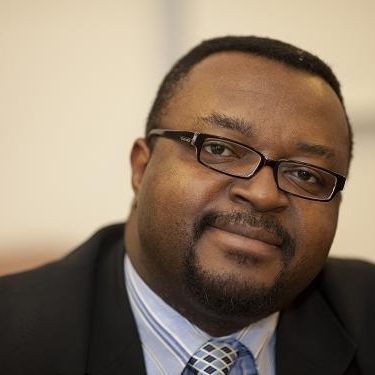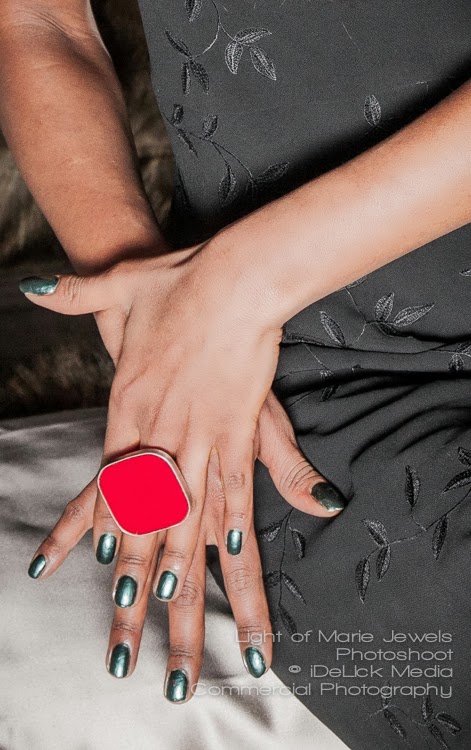Sunday, October 27, 2013
BHM 2013 Video Showcase | Grada Kilomba, Writer and Professor in Gender Studies
Black History Month 2013
Grada Kilomba
Saturday, October 26, 2013
BHM 2013 Spotlight | John Abraham Godson, Forerunner Of The Four Thousand
Black History Month 2013 Spotlight
John Abraham Godson

A Nigerian, John Abraham Godson became Poland’s first black Minister in 2010. His success has been hailed as a landmark in a country where there are just 4,000 black people.
Friday, October 25, 2013
BHM 2013 Video Showcase | Patricia Scotland, Baroness Scotland of Asthal
Black History Month 2013
Video Showcase
Patricia Scotland,
Baroness Scotland of Asthal
Barrister, Former Shadow Attorney General, Former Attorney General of England and Wales
Thursday, October 24, 2013
BHM 2013 Video Showcase | Kanya King MBE, MOBO Awards Founder
Black History Month 2013
Video Showcase
Kanya King MBE
Founder of the MOBO Organisation and MOBO Awards
Tuesday, October 08, 2013
Event: Re-introducing Oshun | 7th – 17th October 2013
Re-introducing
Oshun
An interdisciplinary project using photography, film, prose and objects to re-discover black women’s bodies as sacred places of intimacy, sensuality and beauty.
Featuring an all-female collective working within the mediums of movement, visual arts and poetry, 'Re-Introducing Oshun' demystifies the omnipresent gaze placed on black women's bodies by, "creating images of black women that look, talk, feel and love like us and in doing so presenting our own truths."
More information on the Guest Projects Africa page.
1 Andrews Road
London E8 4QL
Lyric Hammersmith
1 Lyric Square
King Street
London W6 0QL
Head-Wrapping Workshop with SisterE
Wednesday 9th October | 7pm
Stories and Visual about Oshun by Jacob Joyce
Sunday 13th October | 7pm
'Wombs of Wisdom': Womanhood, Spirituality and Obeah
Monday 14th October | 7pm
'Booty Don't Lie:' Black Women's Bodies, Gender and Sexual identities
Wednesday 16th October | 7pm
Click here for more upcoming events!
Stepping Out Of The Shadow To Show The World Our Own Inner Light
"... It's that
singular representation
of black people …
of black women
in society ...
It's that
feeling of being told
you're not
important enough
or
worth being recognised."
In the final part of our interview with Marie, creative director and founder of the jewellery line Light of Marie Jewels, we discuss what ‘social invisibility’ means to her, and who she looks up to for mentorship and inspiration. As we conclude the interview, Yaaya asks Marie to highlight her most proudest moments to date and her exciting future projects.
And so the conversation continues …


Social Invisibility & Creating Equal Opportunities
Also, what I would say is that there needs to be more [consistent] focus on quality, and we need to learn how to work together better and be more professional. You know, not try to cut corners because I have been to some shows and sometimes I ask myself “why did we do that?” I feel from the bottom to the top we have to demand excellence of others and ourselves.



Mentors & Role Models
My dad is also my role model. He also repeatedly told me the same: “You can do it, if you want to become someone you can do it. I know it is going to be hard to do it here [in France] because you have racism, but do not let anyone stop you!” This is what I teach my son. I also mentor my god-daughter, she lives in France and works as a make-up artist.


Celebrating The Journey Thus Far. Celebrating The Journey Ahead.
With my jewellery line I am going to be experimenting more with perspex.


And So The Conversation Ends … For Now :)
A support system is important because ...
This post concludes the final part of our interview with Marie-Maimoona Jeannot. Find out more about Marie’s jewellery line via her blog at Light Of Marie Jewels, Twitter at @LightOfMarie and Facebook at @LightOfMarieJewels.
Catch-up on the earlier parts of our conversation:
Part 1: Marie-Maimoona Jeannot, Introducing The Light Of Marie
Part 2: The Becoming Of Her Independence
Part 3: A Perspective: Being A Black Woman In Europe
Image Source | These images do not belong to Yaaya. Images courtesy of Marie-Maimoona Jeannot (Light Of Marie Jewels)
Thursday, October 03, 2013
A Perspective: Being A Black Woman In Europe
"You know it's only going to be less than ten years since we've had the first black journalist [Harry Roselmack] on mainstream television."
In Part 3 of this four-part post, Marie retrospectively speaks on her experiences as a black woman in Europe, and her opinion on the state of social-integration amongst black communities in France.
And so the conversation continues …


Black People in Europe: Her Experience.
When I came to London almost twenty years ago, I went to open a bank account and I saw a black manager. I was so shocked, because you would never ever see that in France. Never … a black person being a manager of a bank?! Never, no way! That's not possible. I would say the majority of the black people in France are working for the government: for France telecommunications, as the police on estates, or as cleaners. In the private sector, you won't find lots of black people there. There is not much.
When I was younger, my parents would say to me “you need to make sure you have a wage every month, so you need to have a secure job.” My mum wanted me to work with her at France Telecoms. But I told her “no, that's not me. Mum, I can't … that's not me.”

I can't speak for everyone, but I know that because I am black I am also African. There's no doubt there for me. Now, the real open question is “where do I come from [in Africa]?” Everyone says I have got features of a Cameroonian. But I honestly don't know, I would like to know though: I am trying to find it out because I don't know anything about my African heritage.
Even as I tell you that I am Caribbean. I feel more French than Caribbean because I've lived in France for twenty-three years. I've never really lived in Martinique, the longest I had stayed there was two months for holidays. So regarding knowing about my Caribbean or African culture etcetera … I honestly don't know [much].
The other reason why filling this void or gap in my identity is important is because they say sickle-cell is genetic, and sickle-cell trait is more prevalent with people from [sub-Saharan] Africa.

About black women, the stereotype is that we are loud. But I think people confuse being outspoken and voicing what you think with being loud. However, compared to the black men, we are considered more docile.
However, I think it's important to be yourself and not compromise who you are in this process of trying to the best. I don't apologise for being myself, for speaking up to voice my opinion especially when injustice is happening.
Look out for the final post of Yaaya’s conversation with Marie, where we understand her interpretation of social invisibility, the importance of mentoring, and her achievements and future ambitions. Do you also identify with any of Marie’s experiences living as a black person in Europe? Leave your comments below to join the conversation, we’d love to hear your story too.
Image Source | These images do not belong to Yaaya. Images courtesy of Marie-Maimoona Jeannot (Light Of Marie Jewels)

















